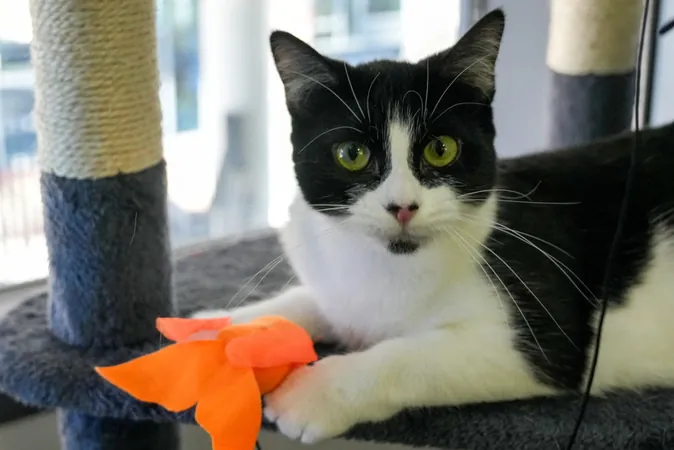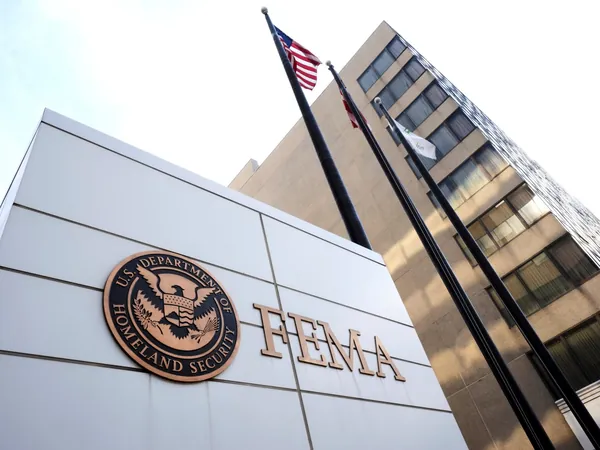
Essential Tips to Protect Your Cats from Bird Flu: What Every Pet Owner Should Know!
2024-12-29
Author: William
The recent death of a house cat in Oregon due to bird flu, alongside a significant pet food recall, has raised urgent concerns among pet owners about how to safeguard their furry friends from this dangerous virus.
Bird flu, scientifically known as avian influenza, has been a persistent threat, primarily affecting wild birds, chickens, and turkeys for years. The virus made headlines earlier this year when it was first confirmed in U.S. dairy cattle, causing alarm among health officials. Despite sporadic reports of mild illness in humans—mostly among those working on farms—the virus poses a significant risk to domestic pets, especially cats.
A Grim Link to Raw Pet Food
Authorities in Oregon have traced the illness of the affected cat to frozen pet food containing raw turkey that had been recalled. Genetic testing confirmed that the strain of the virus found in the food matched that of the infected cat. This incident underscores the risks associated with feeding pets raw meat; Dr. Michael Q. Bailey, president-elect of the American Veterinary Medical Association, warns that raw meat and unpasteurized dairy products can serve as vectors for the virus. Cooking meat or pasteurizing milk is essential in eliminating not just bird flu but other pathogens that could harm pets.
How At-Risk Are Our Pets?
While infections in pets are rare, cats appear to be particularly vulnerable to the H5N1 strain of the bird flu. There have been reports of dozens of feline cases linked to exposure to wild birds or poultry. Since the beginning of the year, the virus has infected various types of cats, including house cats, barn cats, and even big cats in zoos.
In a worrying trend, authorities in Los Angeles are also investigating the deaths of four house cats that consumed recalled raw milk. According to Dr. Bailey, dogs seem less susceptible than cats; however, it is imperative that they are also fed only thoroughly cooked foods to minimize risk.
Preventing Bird Flu Infection: Key Steps for Pet Owners
To protect your cat from potential bird flu exposure, follow these essential guidelines:
1. Avoid Raw Diets
Never allow your cat to consume unpasteurized dairy products or raw meat.
2. Limit Outdoor Access
Keep your cat indoors, as they are natural hunters and prone to coming into contact with wild birds, which are carriers of the virus.
3. Sanitize Your Hands
Be cautious and wash your hands thoroughly after handling any poultry or cleaning up after animals, especially if they are sick or deceased.
4. Monitor for Symptoms
Be vigilant for any changes in behavior, such as lethargy, loss of appetite, or unusual hiding. Other symptoms may include reddening or discharge from the eyes and nose, difficulty breathing, tremors, or seizures. If you notice these signs, contact your veterinarian immediately.
Recalled Pet Food Alert
In light of these events, Northwest Naturals, a pet food company based in Portland, Oregon, has announced a voluntary recall of a specific batch of its Feline Turkey Recipe raw frozen pet food after it tested positive for the bird flu virus. Affected products were distributed across multiple states, including California, Colorado, and Wisconsin, as well as in British Columbia, Canada. If you own this product, check the "best if used by" dates of May 21, 2026, and June 23, 2026, dispose of it immediately, and seek a refund from the place of purchase.
Final Thoughts
While the threat of bird flu can be unsettling, proactive measures can significantly reduce the risk to your pets. Stay informed and vigilant. Remember, your cat relies on you to keep them safe, so don’t let your guard down!









 Brasil (PT)
Brasil (PT)
 Canada (EN)
Canada (EN)
 Chile (ES)
Chile (ES)
 Česko (CS)
Česko (CS)
 대한민국 (KO)
대한민국 (KO)
 España (ES)
España (ES)
 France (FR)
France (FR)
 Hong Kong (EN)
Hong Kong (EN)
 Italia (IT)
Italia (IT)
 日本 (JA)
日本 (JA)
 Magyarország (HU)
Magyarország (HU)
 Norge (NO)
Norge (NO)
 Polska (PL)
Polska (PL)
 Schweiz (DE)
Schweiz (DE)
 Singapore (EN)
Singapore (EN)
 Sverige (SV)
Sverige (SV)
 Suomi (FI)
Suomi (FI)
 Türkiye (TR)
Türkiye (TR)
 الإمارات العربية المتحدة (AR)
الإمارات العربية المتحدة (AR)